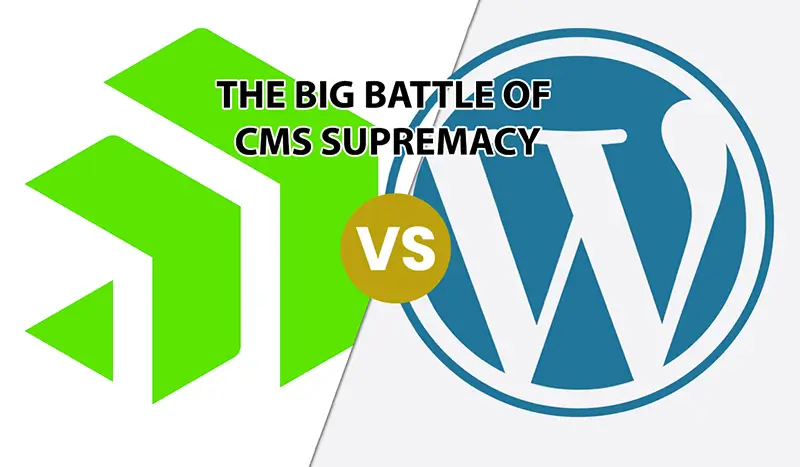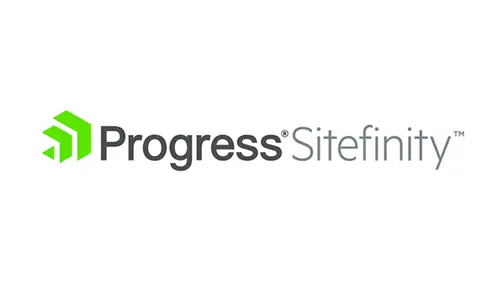We think everything is good up today on your side. With this fine day, let us discuss the battle between 2 leading content management systems – Sitefinity vs WordPress. When it’s time to decide for choosing the right CMS platform, many of us straight go with WordPress without even taking any consideration. Yah! That’s true as it is simple and easy to manage, among other advantages. We also have built several websites using this platform.
We have also extensively worked on web portals built on the Sitefinity content management system instead of WordPress. Hence we have a great amount of experience judging both CMS frameworks strengths and weaknesses.
And you must be thinking about which CMS platform we would choose or in a clear cut which one is better?
Sitefinity vs WordPress
In this battle of the CMS platforms, we asked some of our experts about the pros and cons of both CMSs. Let us look into what are their thoughts on this heated topic
Sitefinity Pros and Cons
Ther are a lot of advantages in building your website in Sitefinity. Sitefinity have great features and advantages, it supports a rich taxonomy and an out-of-the-box workflow and it has many other compelling like responsive templates and a flexible layout system.
Other pros include
Sitefinity also contains several features that allow for a wider content creation and marketing experience. For example, Sitefinity can connect directly to social media platforms, letting site administrators manage their social media accounts from a single location. Sitefinity also allows for A/B testing of pages, as well as email template creation.
Sitefinity’s high performance does not come without its drawbacks. When compared to other CMS’s, especially open source systems, Sitefinity’s license fees can price out many potential clients. Sitefinity has a variety of different licensing plans, each based on different usage types such as by server or number of domains.
WordPress Pros and Cons
Originally, WordPress was built as a blogging platform at the beginning and because of this, it does blogging very well but as time passed by it was vigorously used for website building. It’s insanely easy to extend with plugins and can be pretty customizable by just tinkering with a few configurations.
Besides, WordPress has an active community that the plugins and the platform are updated frequently which makes it great for security purposes. But unfortunately, this does pose a bit of a maintenance challenge. Those who use WordPress will have to update to the latest version every month. WordPress plugins need to be updated more often.
Who’s the Winner in the battle of Sitefinity vs WordPress?
In the battle of the CMS platforms, there are advantages and disadvantages on both platforms. Many are familiar with WordPress and are fairly comfortable with adding new content, plugins, etc. based on their needs.
As for Sitefinity, it has powerful internal and external security. Sitefinity runs off .net infrastructure which increases the security of its sites. Sitefinity also is not open-sourced, meaning all its plug-ins and add-ons have been rigorously tested for both security and performance. While there is some limitation to Sitefinity, the page content of the website shares the same taxonomy as the rest of the website, providing rich content for your users.
So, we put down our case on rest concluding that both platforms are great for building a website, but when it comes to deciding which platform is best for you, you need to think about which elements you want to include on the site itself. With this in mind, you’ll be able to make a decision.
Sitefinity Alternatives
There are many Sitefinity alternatives available, like WordPress, Drupal, DNN, SiteCore, Joomla etc. If your business portal is heavy with a vast number of new pages and information keep on getting updated and you have a sizeable budget to invest, Sitefinity is the best CMS. If you look at the US, Canada CMS usage, most of the healthcare/education/insurance/financial web portals are built on Sitefinity. Whereas if the budget is low and you wish to do away with annual licensing etc. then WordPress fits the best. Still, confused? We can help in choosing the right one, just drop an email to us!!
If you are contemplating on technical considerations before choosing your CMS framework for your business web portal, OR wishing to migrate from Sitefinity to WordPress or vice versa, just drop an email to us. We have some of the best Sitefinity & WordPress developers in India. If you need more information or wish us to assist in analyzing you, do reach out to us on – info@oditeksolutions.com







